DISPATCH
The Hare Krishna Cultural Center Temple is a large building located on the slope of one of the hills in the center of Dunedin. The house hosts Seva (one of the community members) and volunteers and serves as a place of celebration for gatherings held several times a week. Although a little austere, the building is very nice with wooden floors and a large staircase. I am shown around the house and assigned to a large room on the ground floor opposite the kitchen. Space and a room for me all alone, what comfort! Portraits of Krishna or A.C. Bhaktivedanta Swami Prabhupada (founder of the movement) adorn each room of the building and a smell of incense floats in the air. It is the first time that I have set foot in a place of worship dedicated to Hare Krishna.
The International Association for the Conscience of Krishna or Hare Krishna (in reference to the mantra of the followers) is a religious movement and lifestyle founded in 1966 by Pradhupada, a Hindu spiritual master from West Bengal. It is a current of Hinduism dedicated to Lord Krishna considered by the followers as the supreme and unique God. The doctrine is based on the sacred texts mainly from the Bhagavad-Gîtâ, one of the fundamental writings of Hinduism. Followers of the movement see themselves as servants of Krishna, creator of the universe and all living things. Every action performed during the life of a follower influences his cycle of reincarnation. Followers believe that man should use every moment of his life to live in “Krishna Consciousness”, allowing the individual to be freed from his materialistic envelope. Members of the movement follow the path of bhakti, an essential component of Hinduism, which includes a vegan diet. No meat, no fish and no eggs. All food is offered to Krishna before it is eaten to ask for prasada, the grace of God. One of the main religious practices is to repeat while chanting the name of Krishna. The mantra of which the words below are in principle supposed to be recited 1728 times a day: Hare Kṛṣṇa Hare Kṛṣṇa / Kṛṣṇa Kṛṣṇa Hare Hare / Hare Rāma Hare Rāma / Rāma Rāma Hare Hare.
As a volunteer at Hare Krishna, the work consists of working from Monday to Thursday, from 10a.m. to 3p.m. approximately, in the kitchen of the OUSA (Otago University Students’ Association) in order to help prepare vegetarian meals for students. As well as going to harvest salad leaves, vegetables and plants in the vegetable patch. The rest of the time is free. This leaves me quite a bit of time to explore the region and look for work. Of course, the place being a religious temple, participation in community gatherings to discover the lifestyle of the followers is appreciated.
I spend the first weekend quietly waiting for work to start and for the other volunteers (an American girl and an Argentinian couple) to arrive. I help prepare meals for Saturday and Sunday evening gatherings and discover vegan cuisine. Monday morning, departure at 10am with Seva for a thirty minute walk to reach OUSA. A warm and relaxed atmosphere welcomes me and I meet Bronwen and Fife, a very friendly couple working on Mondays and Tuesdays in the kitchen. In addition to serving meals at $3 to students (and non-students), the association offers club rooms, large sofas, lots of self-service games, showers, “gender neutral” toilets (no distinction between women’s toilets and men’s toilets to support the transgender movement (a great initiative) and even a cuddle club with cats! Much better than the vast majority of French student clubs.
I am making an apple crumble when JMa (whose name means “Joyful Mama”), the movement coordinator and wwoofer manager, arrives around 11am from another temple in Christchurch. Full of energy, incredible, always smiling, wise, crazy, full of love and completely dedicated to the Hare Krishna movement, JMa is a interesting character full of charm.
The day goes by full of discoveries. Puris, fried Indian breads, pakoras, fried vegetable fritters (in our case potato fritters) and the prasada ritual (deposit of a sample of all the food prepared in a small altar dedicated to Krishna and recitation of prayer) are revealed to me. At noon the students arrive and the pace quickens. JMa twirls on all sides. Shouts, smiles, good atmosphere and Indian music (dedicated to Krishna) fill my ears. The main dish at $3 is made of pasta and vegetables for Monday. Rice and vegetables on Tuesday, soup on Wednesday and pasta / lentils and vegetables on Thursday. For an additional $1, students are entitled to a dessert made of apple crumble. In addition, there are extras, such as puris and pakoras at 50c or samosas (large vegetable fritters) at $1.50. I taste a little of everything and it is very good. The pakoras are particularly tasty!
Two hours later the service is finished and I am really happy with my first day of work. A little goblin full of energy then arrives and I meet Stormie, the young American wwoofer. We are tidying up and cleaning the kitchen when the couple of Argentinian wwoofers, Alejandro and Flor, arrive, a little disoriented. They actually arrived two hours ago. They asked OUSA reception to speak to Jane (JMa’s official name) and the receptionist replied that she didn’t know anyone by that name here! So they waited until the end of the service to come and take a look, hoping that they were in the right place. We get to know each other on the way back.
The end of my first week of wwoofing is going very well. Between busy working hours and free time spent visiting or chatting between wwoofers, no time to get bored. Everyone is very friendly and the atmosphere is very warm. Wednesday morning, it is departure at 8am to make bread! In fact, every Wednesday, the dishes change a bit since the main dish consists of a bun with vegetable / lentil / wheat soup. Chocolate pudding for dessert and with extras is added bliss balls (chocolate or apricot flavor). The soup and the rolls are a delight! I also meet Sophie, my French friend who is studying at the university and comes to take her meals at the OUSA kitchen.
Alejandro and Flor introduce me to very good Argentinian cuisine and in particular to mate, the traditional South American drink prepared by infusing yerba mate leaves. I also attend the Hare Krishna talk on Wednesday and Saturday evening to learn a little more about this religious trend. Wednesday is an open discussion session. Not believing in God or any religion, I ask questions in an attempt to understand the principle of faith and the details of the Hare Krishna movement. But I find the discussion a little vague and not very instructive. Saturday is more successful for me. The gathering consists of chanting mantras in honor of Krishna, reading a few chapters from the book tracing the life of Prabhupada and feasting on a delicious vegan meal.
Saturday is also a visit to the vegetable patch located on the top of a hill outside Dunedin. Harvest of salads, vegetables and various plants which will be used to prepare meals for weekend gatherings. The vegetable patch is shaped like flower petals. JMa also shows us around St Clair Beach and Second Beach, a small beach behind St Clair where you can see the sea rushing through the rocks and gigantic algae spinning in the waves. My one-year visa finally arrives and my free afternoons are then divided between canvassing all the restaurants and shops in the center and walking around the city. My job search is unfortunately quite fruitless and I decide to stay two more weeks at Hare Krishna. It must be said that JMa is very friendly and that I really enjoy working in the kitchen. The second week goes as well as the first, even better, and everyone’s face seems to be blocked in smile mode.
New wwoofers are also arriving. It is with great pleasure that we welcome Sally from England and a few days later Maude from Quebec and Roman from Australia. Our team is a real melting pot from all over the world! For twice as many smiles, exchanges, joy, cultural discussions, madness and wonder! Beautiful friendships are born and I hope they will last. In addition to having fun like crazy in the kitchen and between wwoofers, we do some pretty hikes (see next article) and we attend the University Cultural Festival. A whole bunch of stands with culinary tastings, demonstrations of specialties, boxing stand, stage for dance performances, fill the hall of the university. The photo booth with costumes from different Asian / oceanic countries and Maori tattoos are big winners for us!
The days pass similar and different but always full of good mood. I feel like I have been in Dunedin for months. By dint of surveying all corners of the city to find work, I begin to know it by heart. Sally helps me formulate and adapt my CVs and cover letters in English. At the end of the second week Stormie leaves us for another wwoofing. Then it is Flor and Alejandro’s turn at the end of the third week to say goodbye, Flor having found a job on a dairy farm near Oamaru (about 1h30 north of Dunedin). With their departure I feel like I am losing part of my cultural identity.
Having no answer for the job despite the many CVs distributed and sent, I decide to stay a fourth and last week with Hare Krishna. Still a few days to hope for an answer otherwise I will have to go elsewhere. Dana and Thomas then arrive from Belgium to reinflate our United Nations of the World team! My last week is going quietly and oh joy, I receive a positive response, Wednesday evening, to work on a dairy farm too. Near Invercargill in the Southland region, the South of the South Island. Departure Saturday. Little diner to celebrate, visit to second-hand clothing stores to buy warm clothes and I take advantage of the last moments in the kitchen and the last discussions with JMa and the other volunteers. Many of the things she mentioned, beyond the religious aspect, seemed fair and benevolent to me. Whether in relation to mutual aid, exchange, respect, honesty, living her life trying to detach herself from the materialist aspect or from her own self-centeredness, many of the subjects she has evoked made me think.
My one month wwoofing at Hare Krishna was a very nice experience. I learned a lot, made extraordinary meetings and had a great time. Everything was not perfect (bad weather, fatigue in the kitchen, anxiety about finding a job, heating in the temple a little weak, some tensions, religious misunderstandings and disappointments) but this is not important in the face of the happiness that this volunteering brough me! A huge thank you to JMa, Seva, Bronwen, Fife, Alistair, Emily and Robin for sharing their culture, way of life, views and experience in cooking! And of course, a huge thank you to Stormie, Flor, Alejandro, Sally, Maude, Roman, Dana and Thomas for these wonderful moments spent in your company. I hope to see you all again one day!
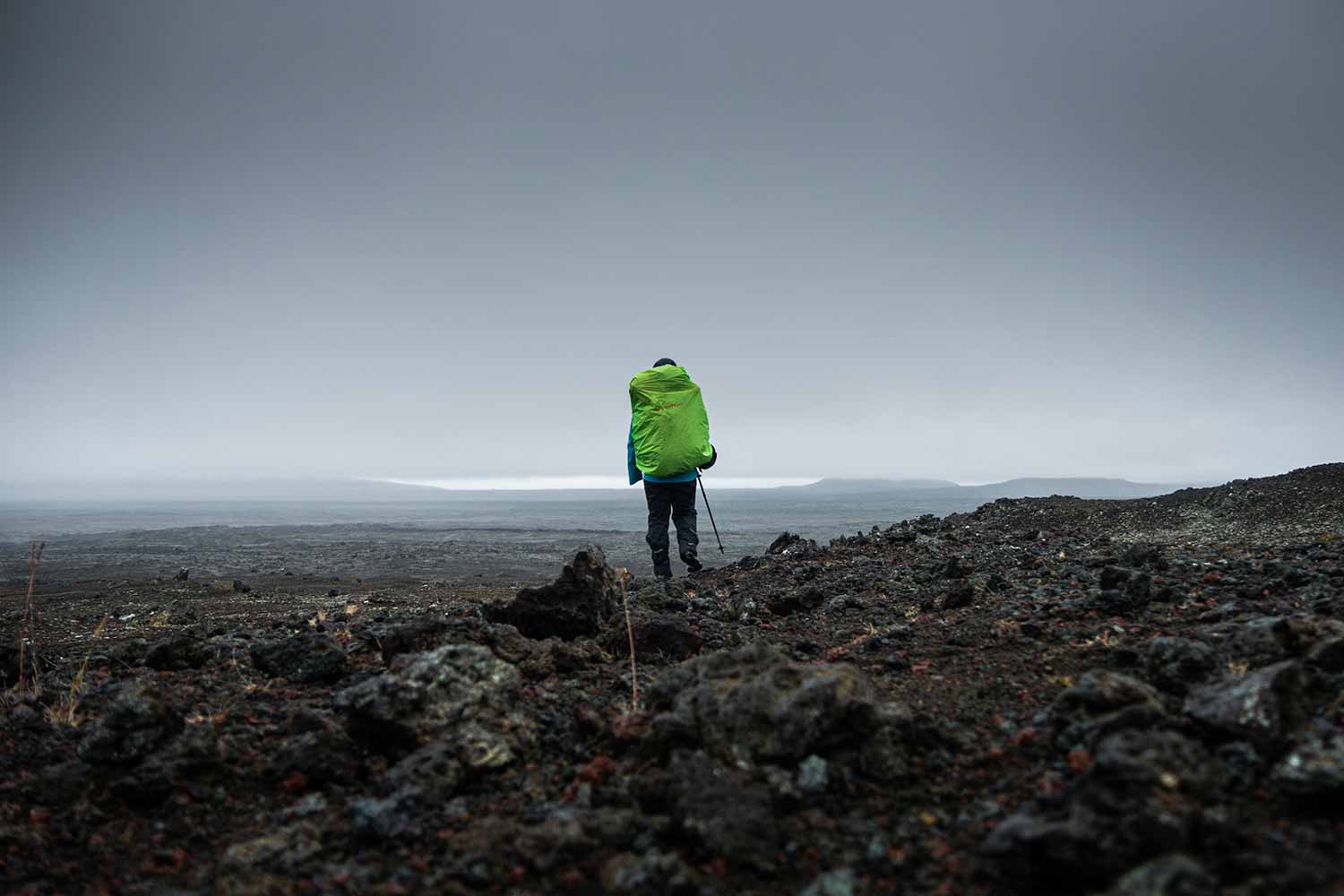
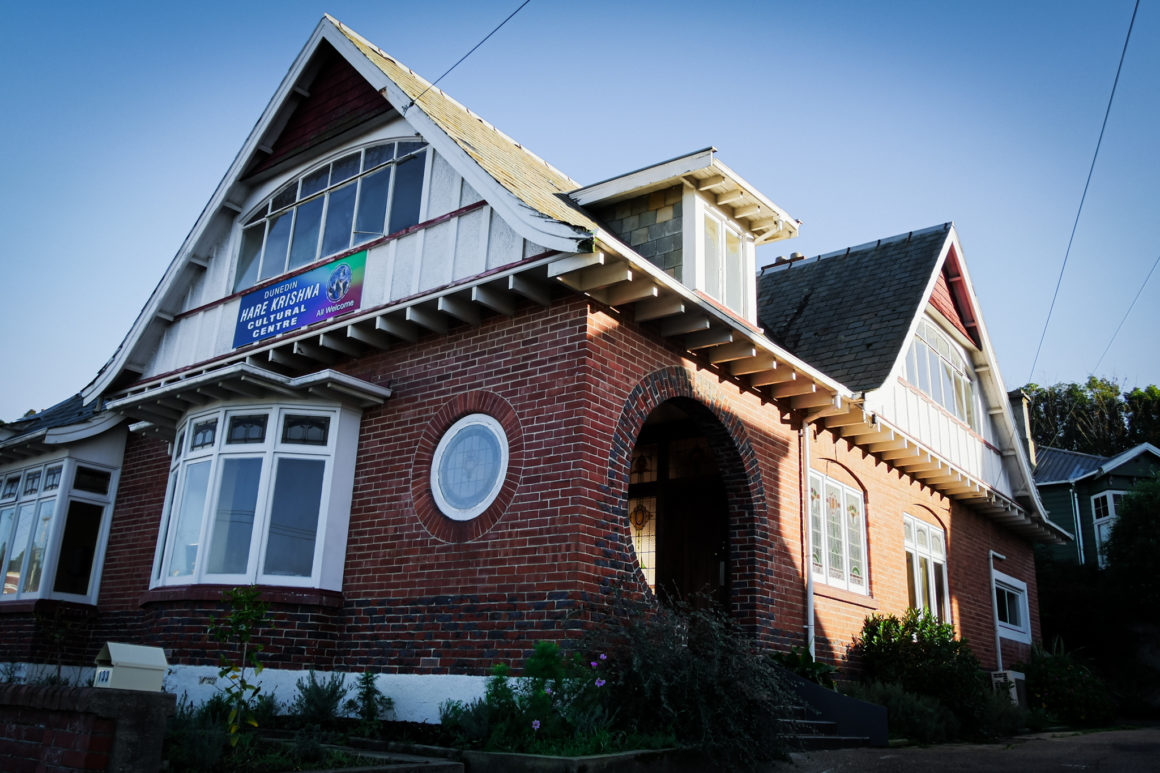
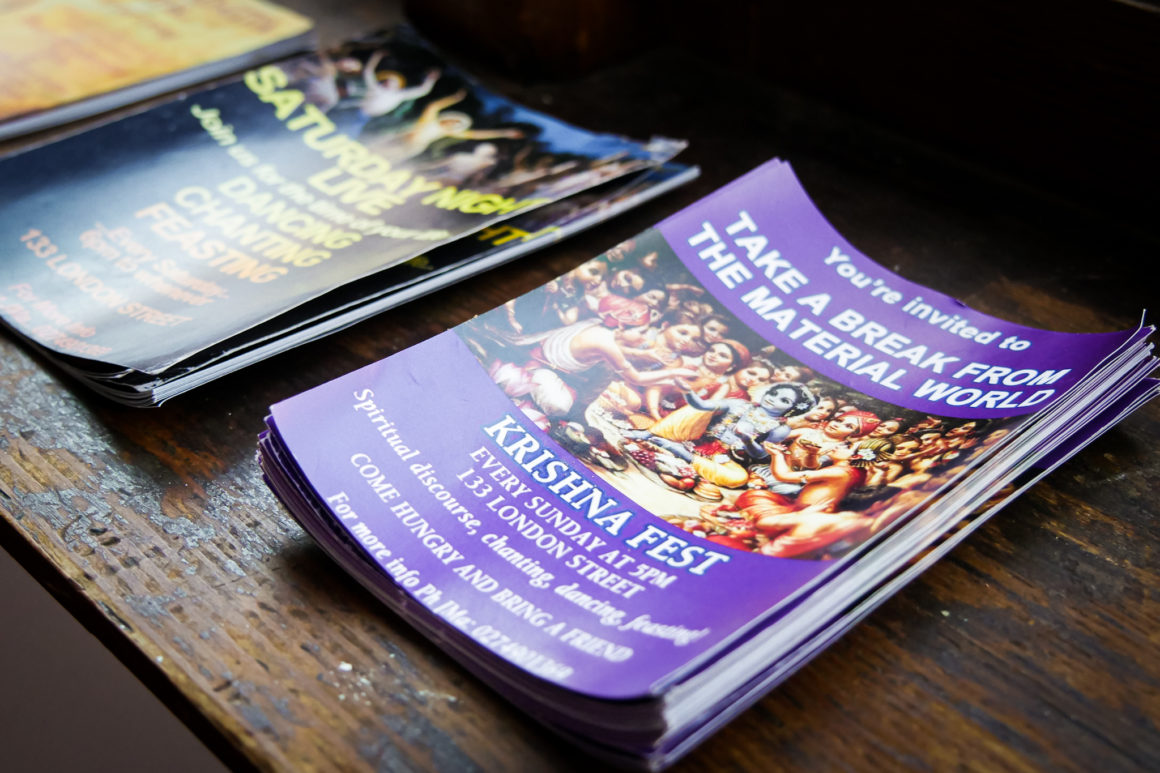
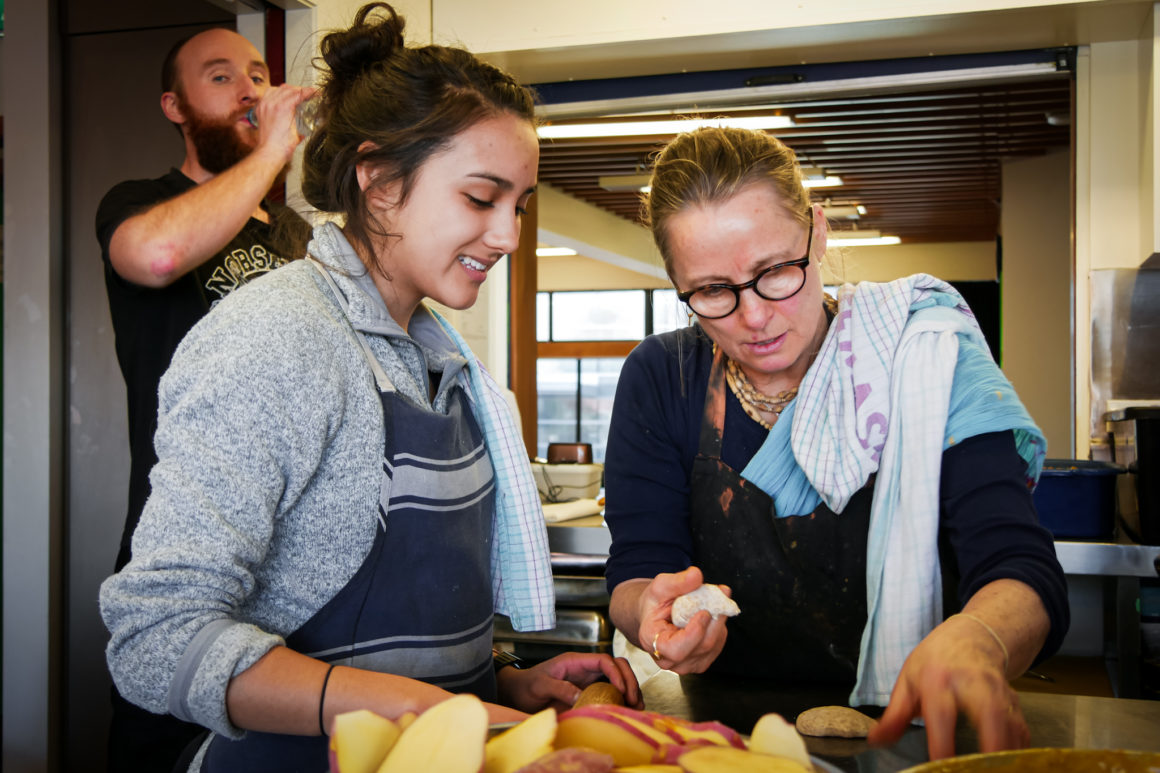
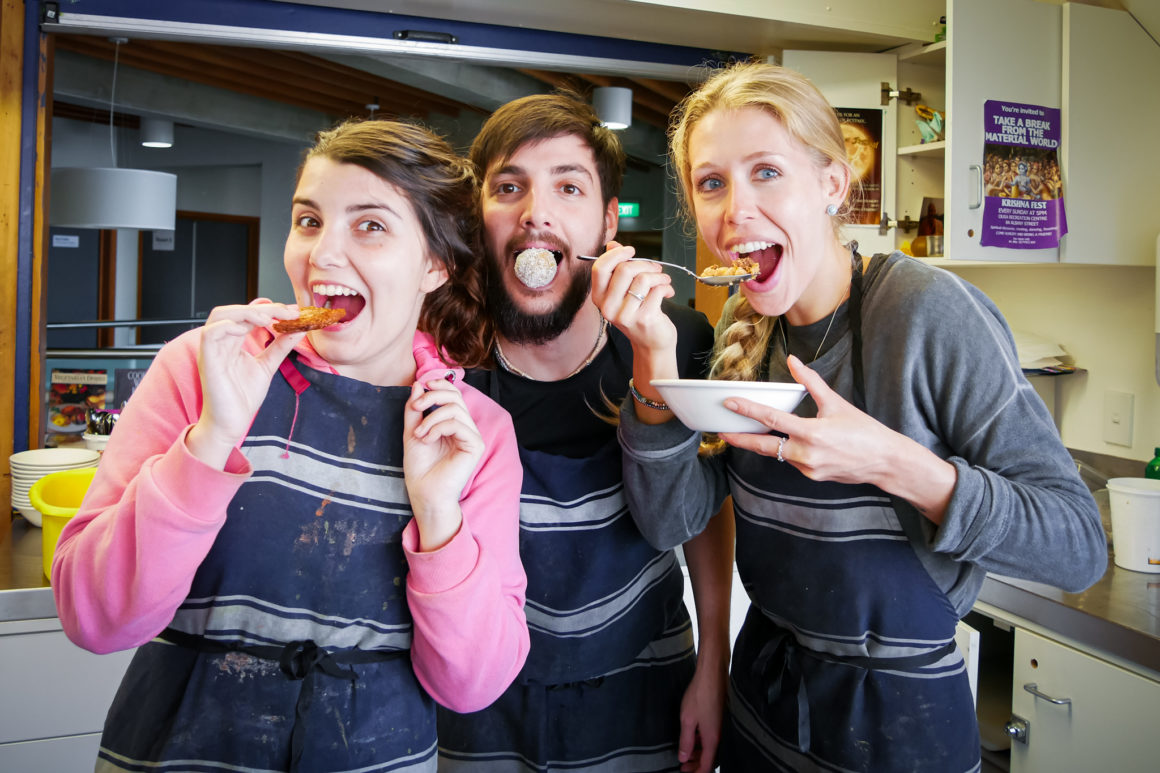
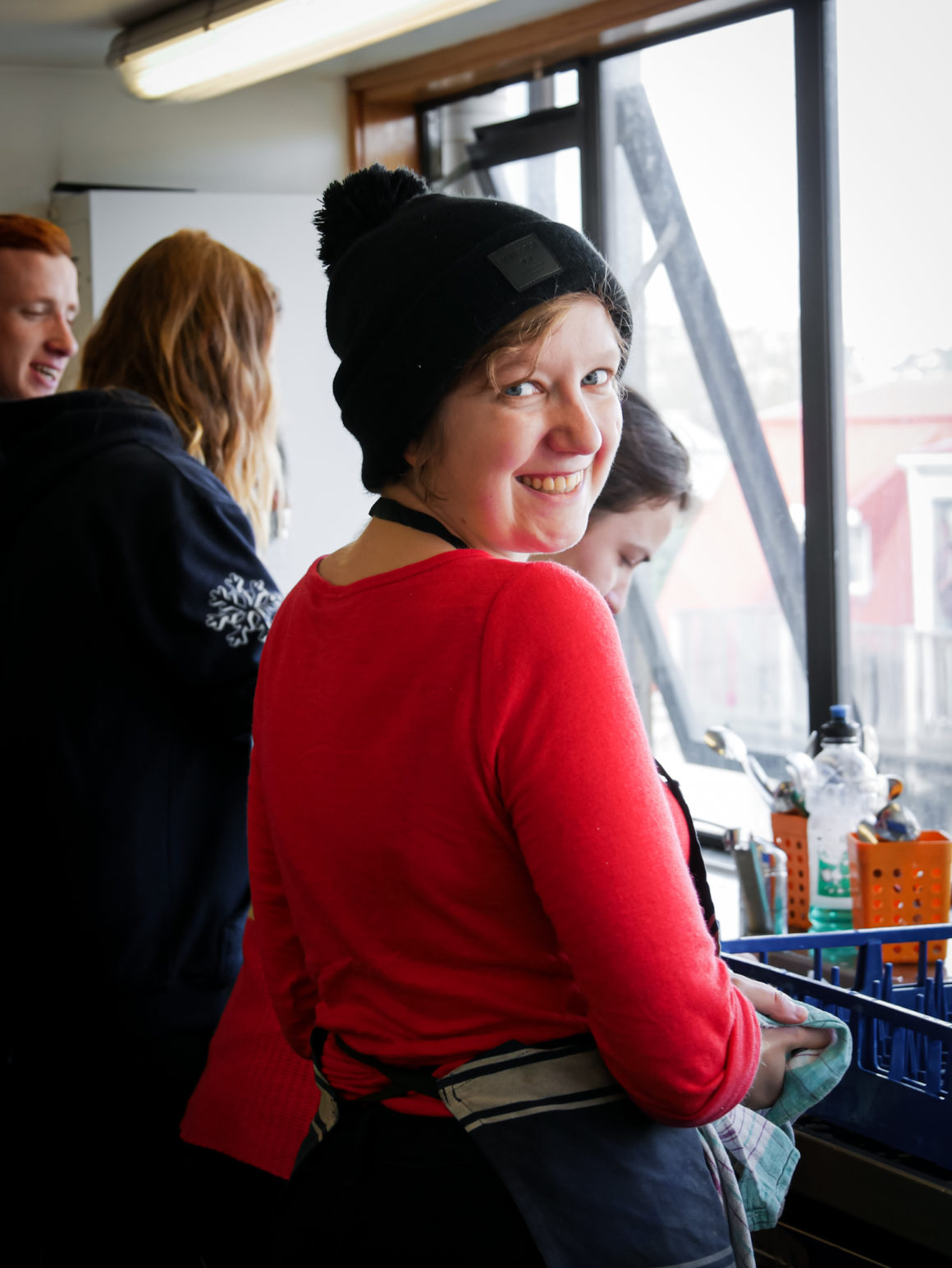
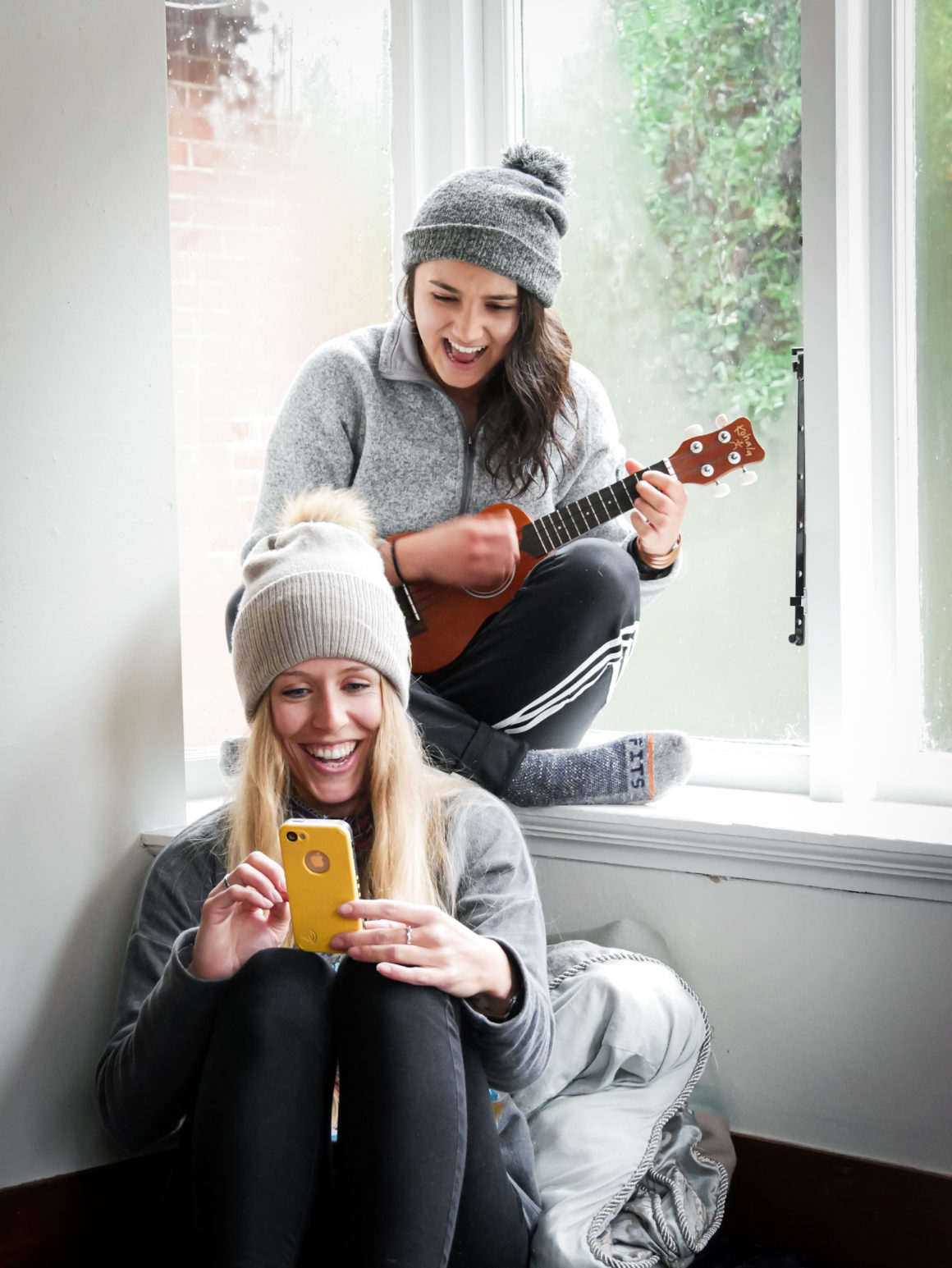
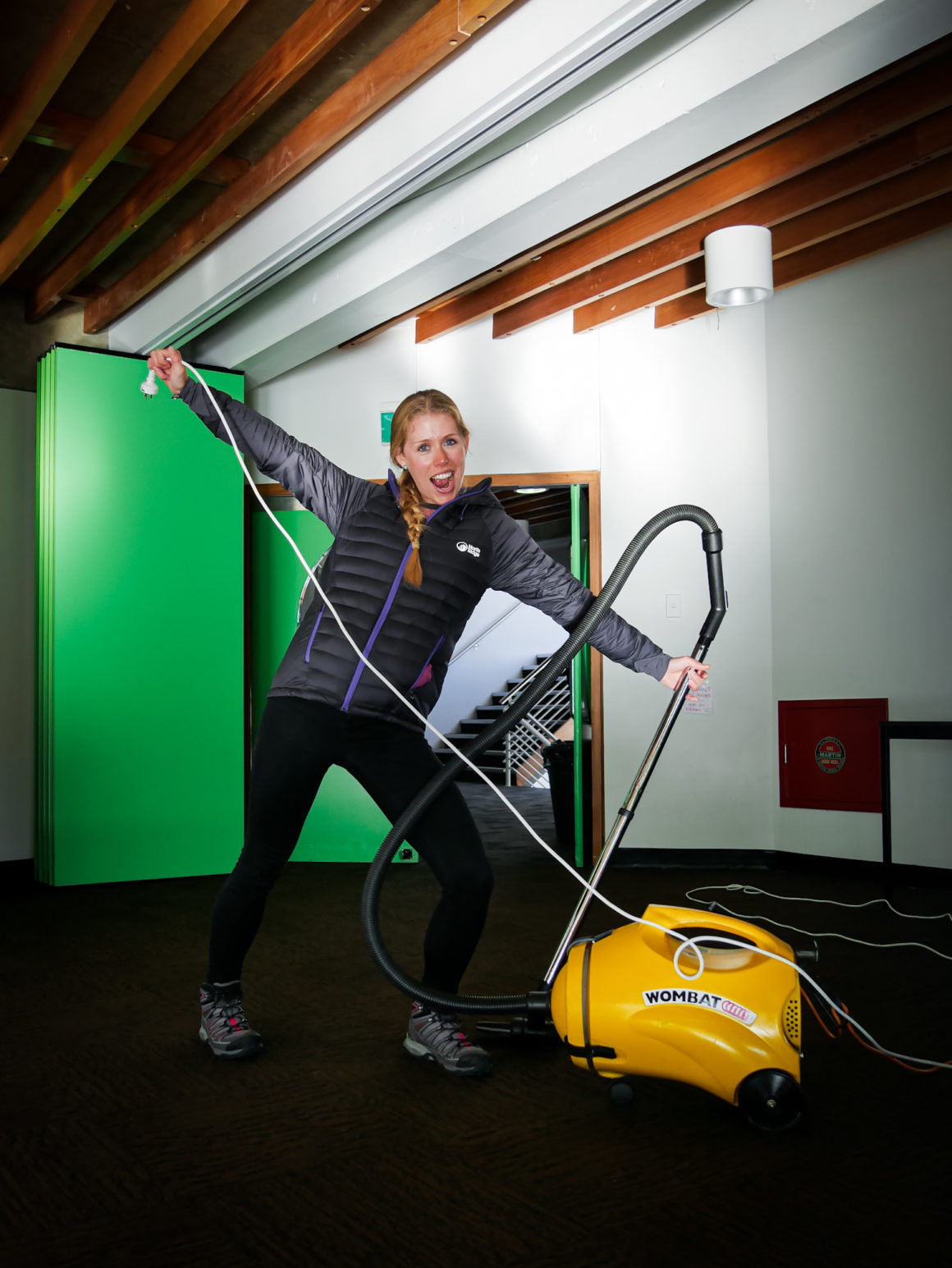
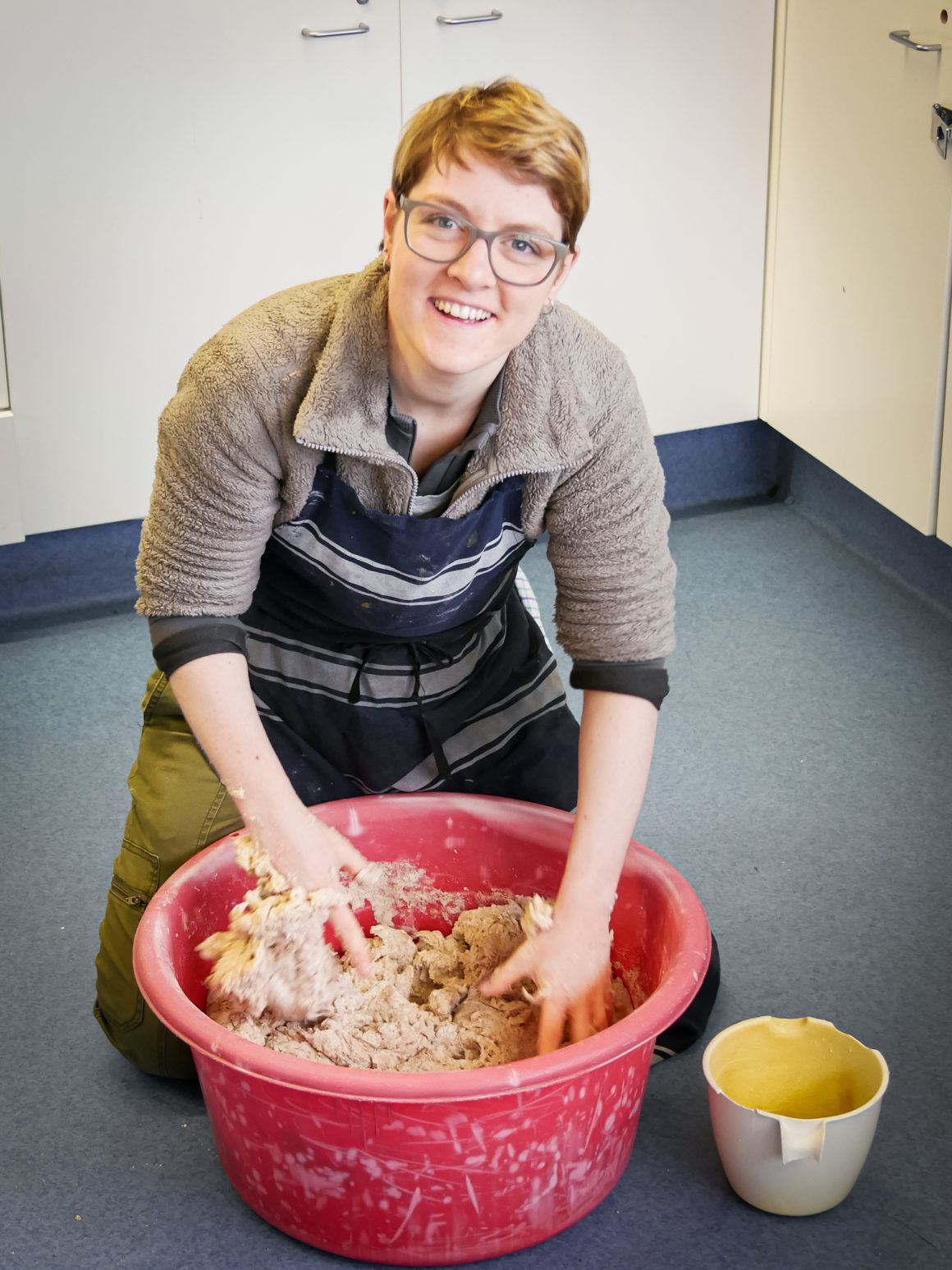
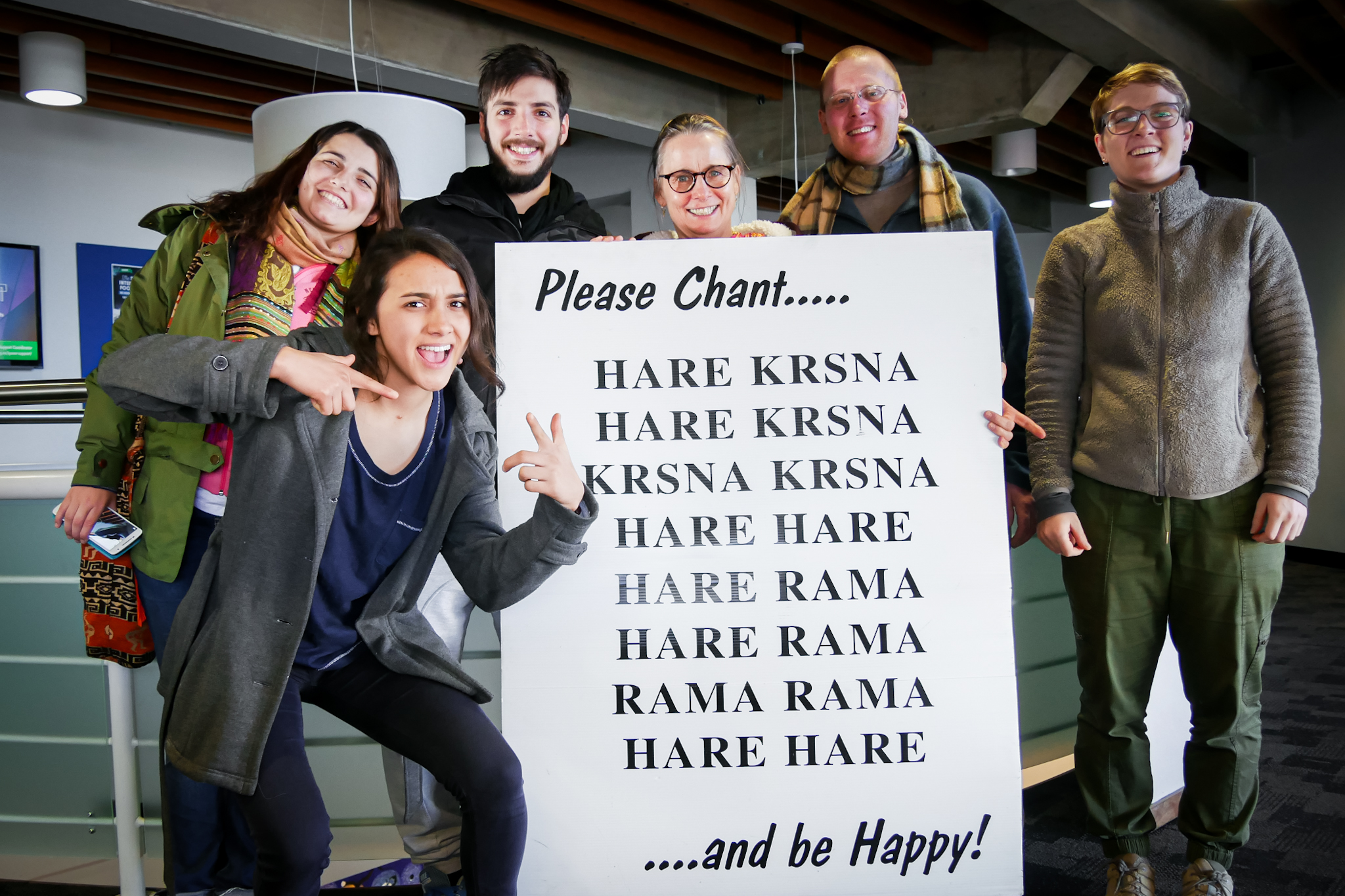
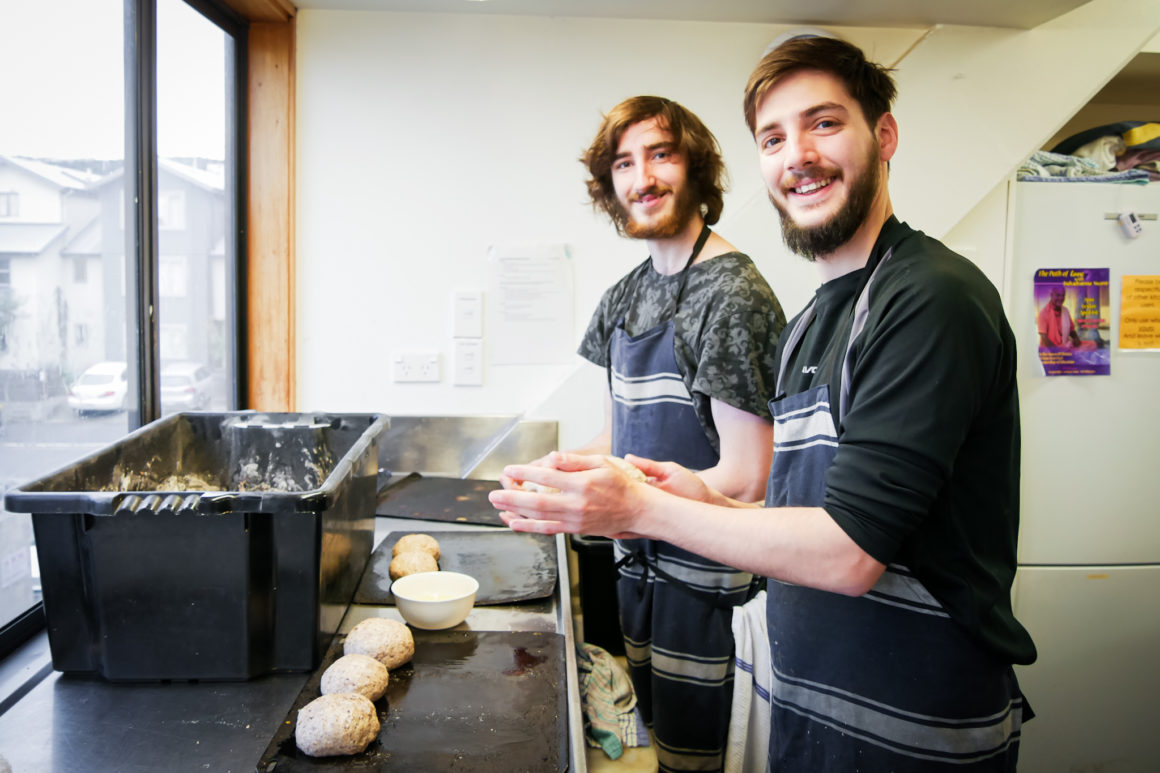
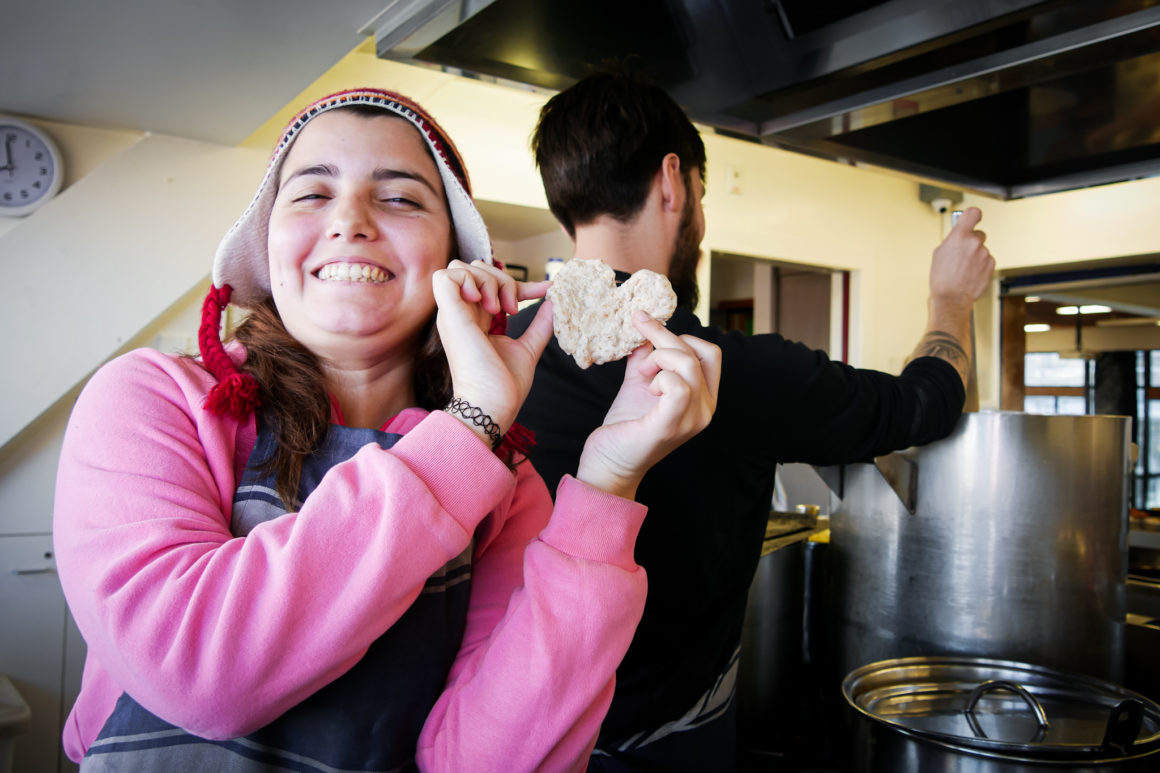
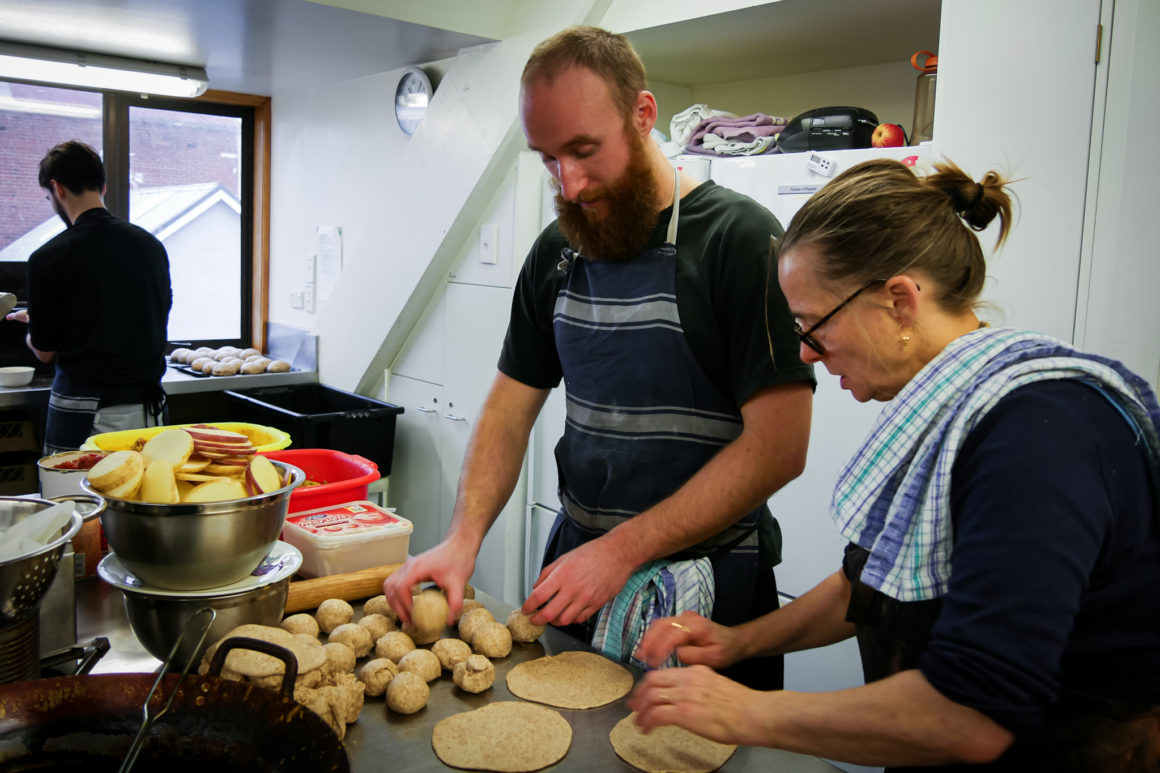
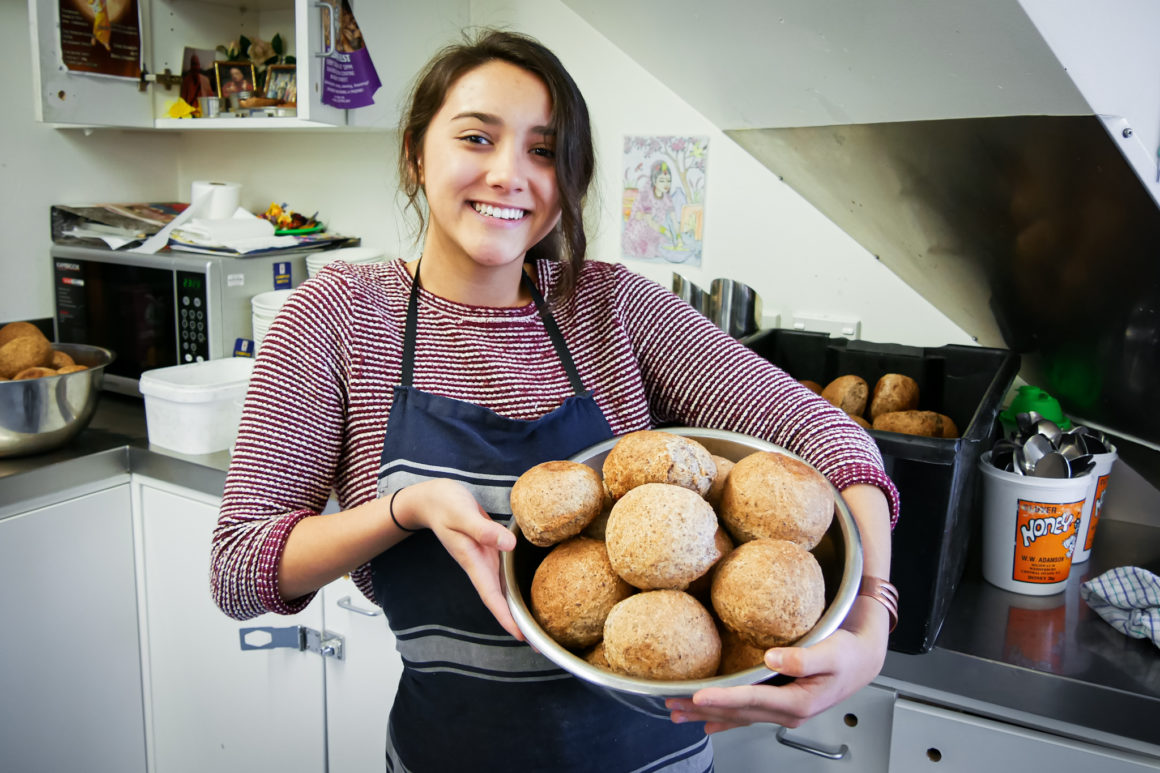
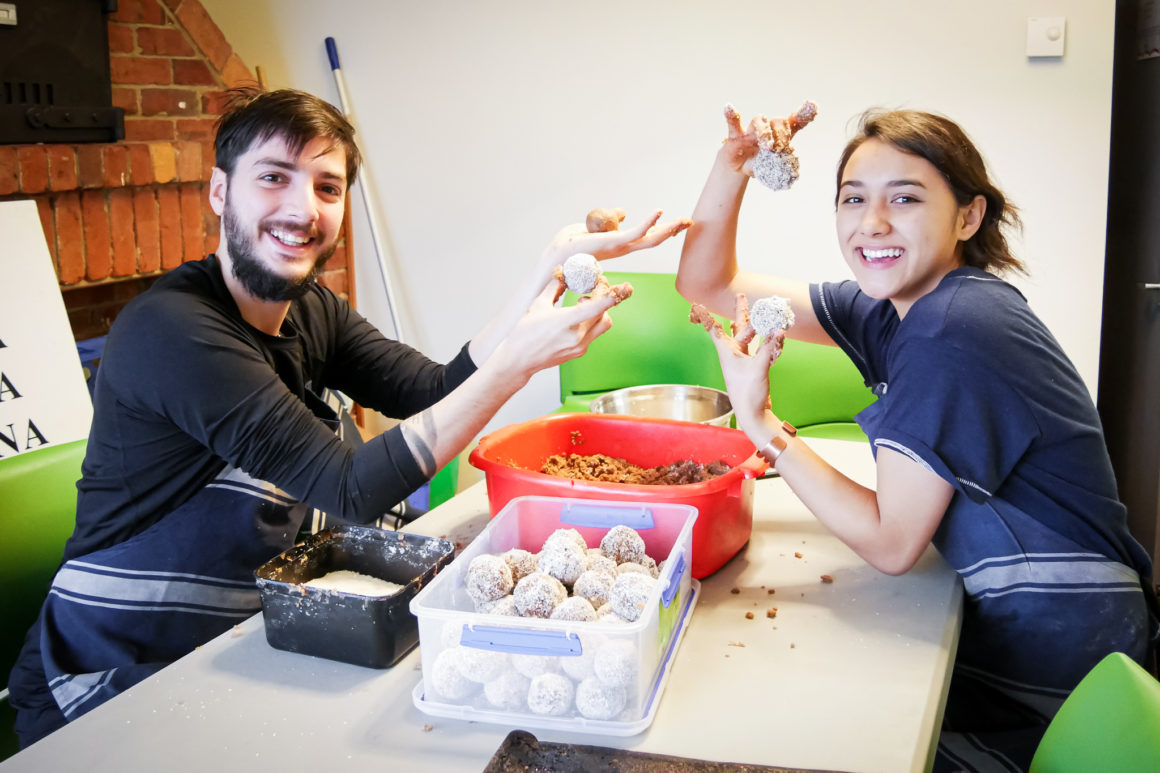
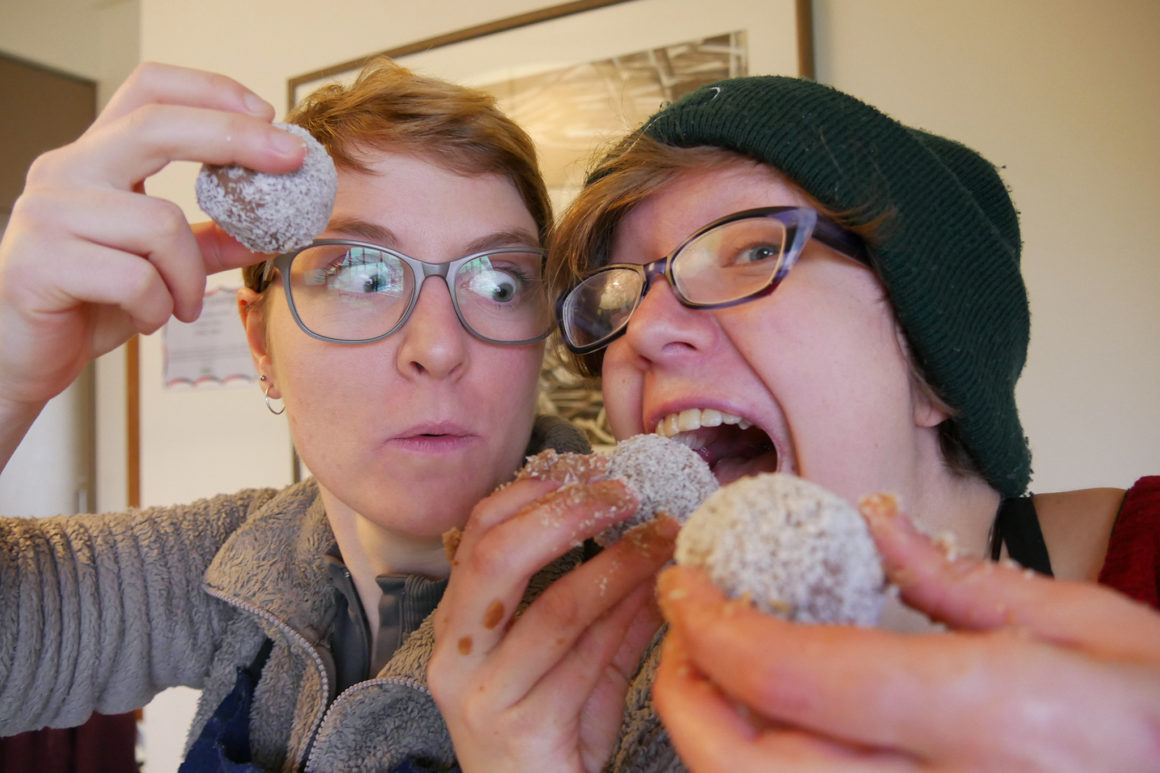
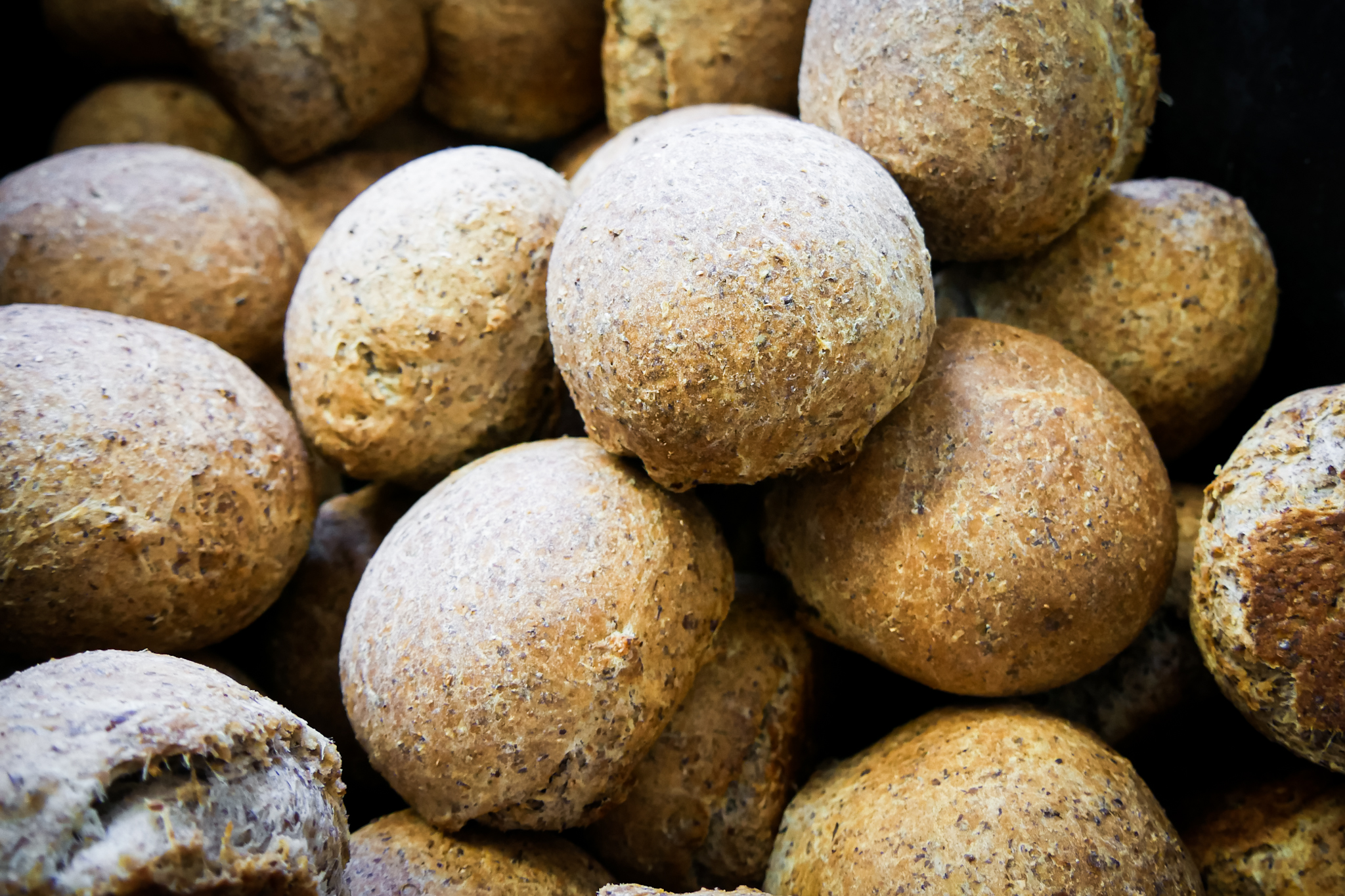
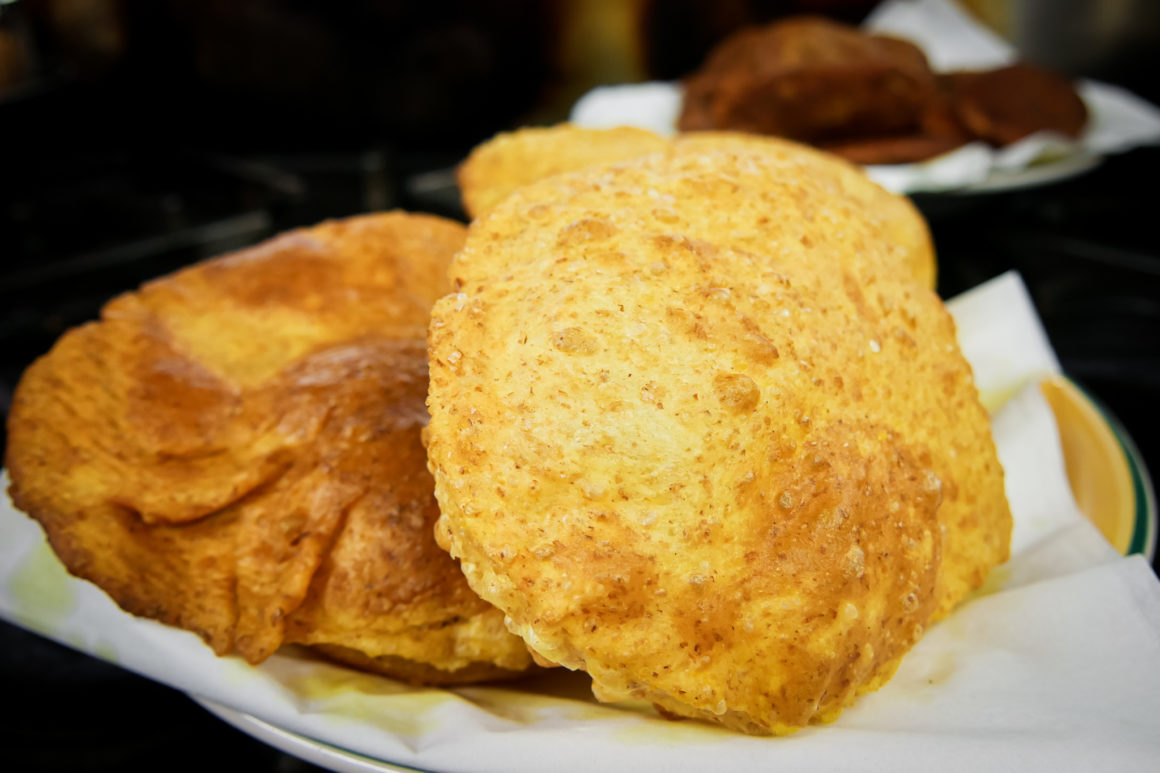
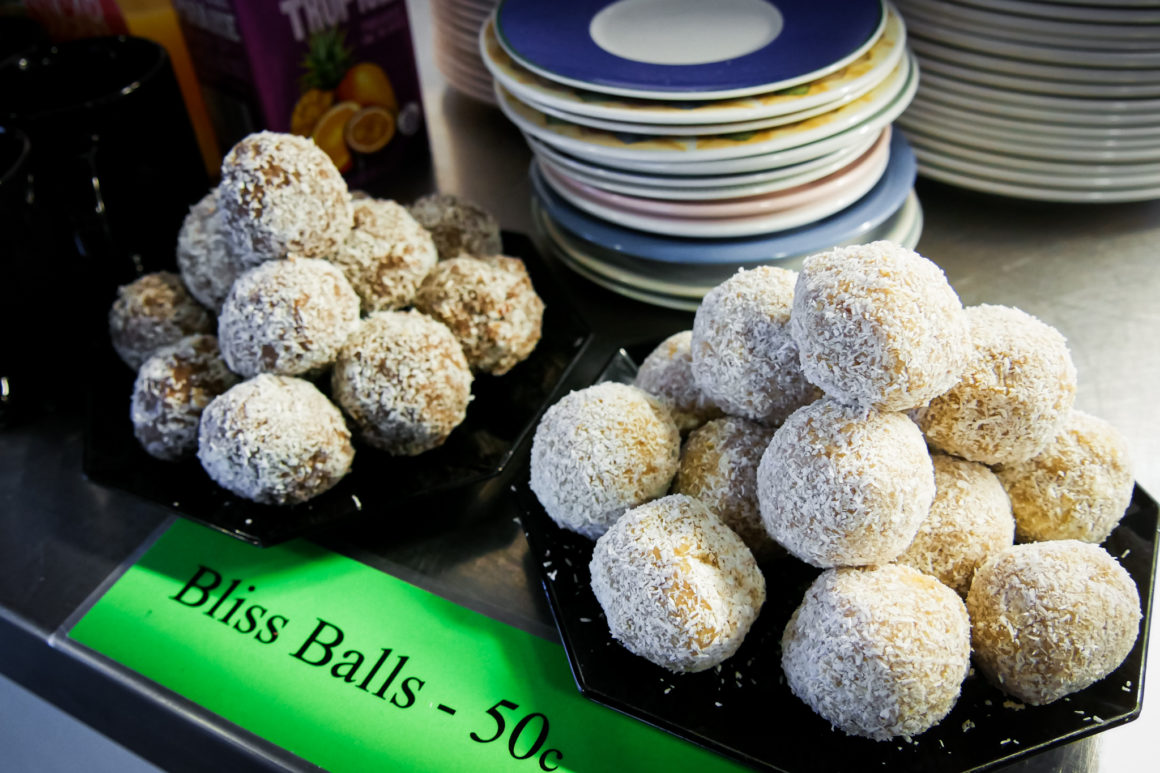
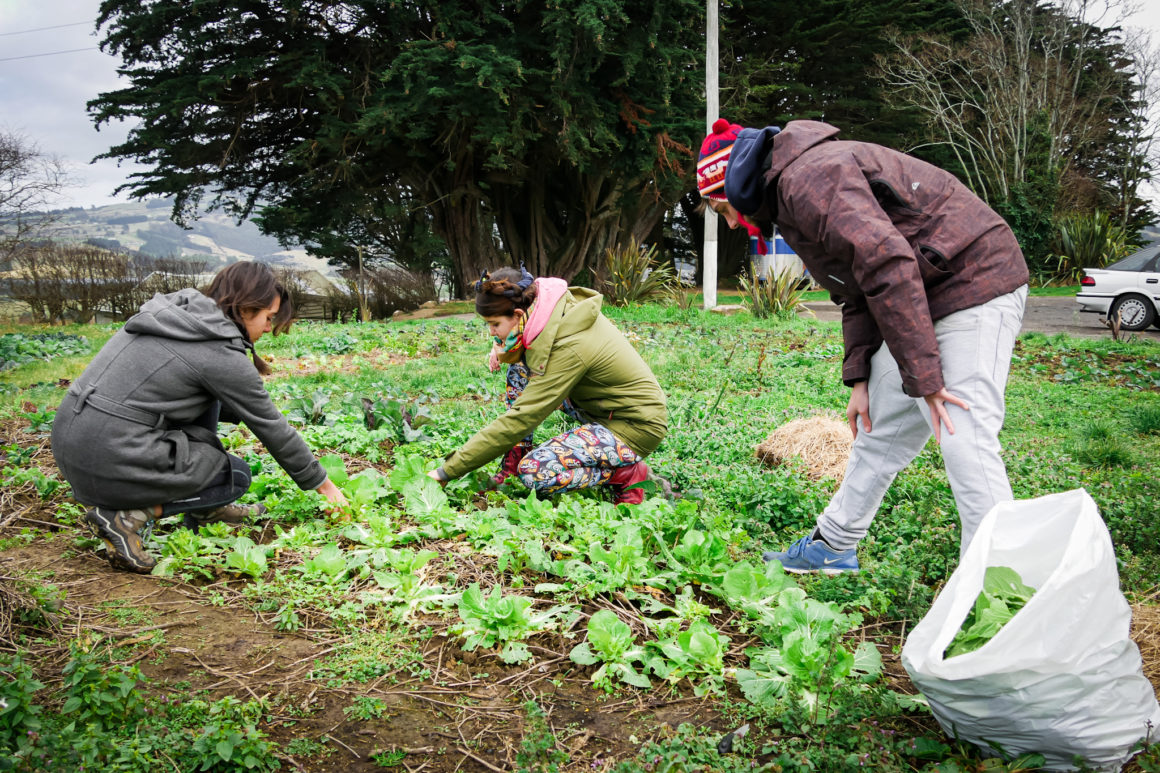
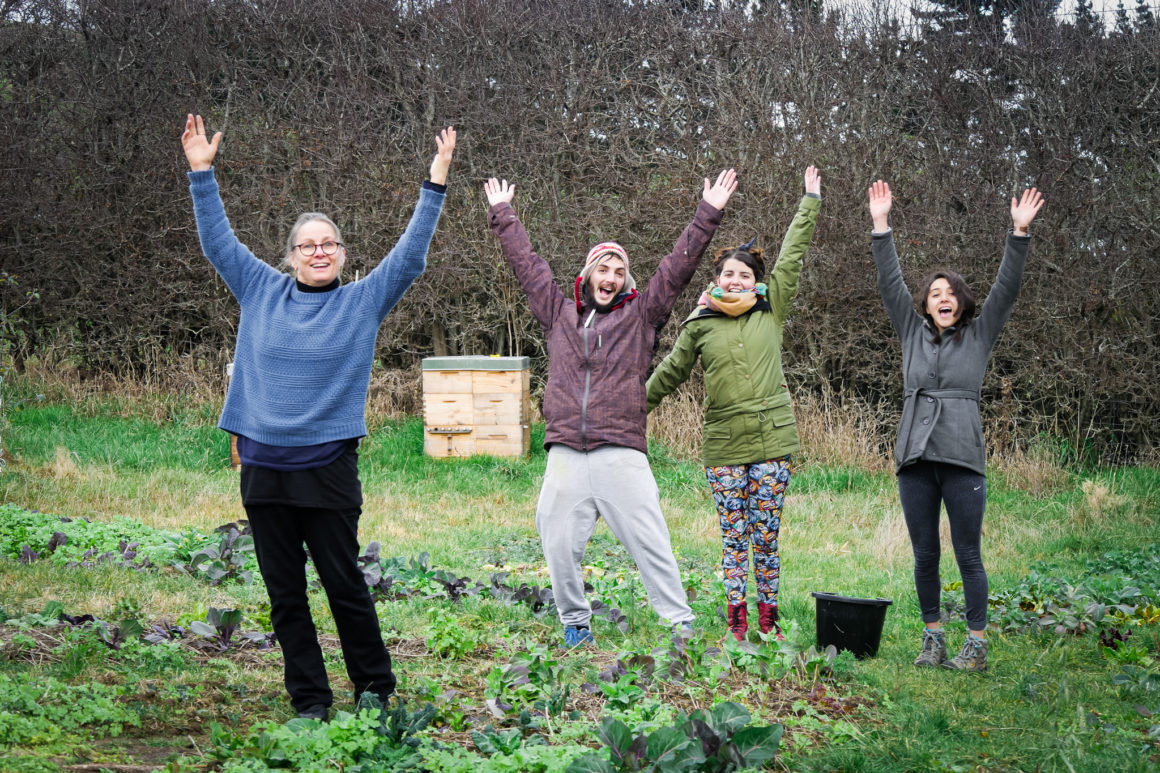
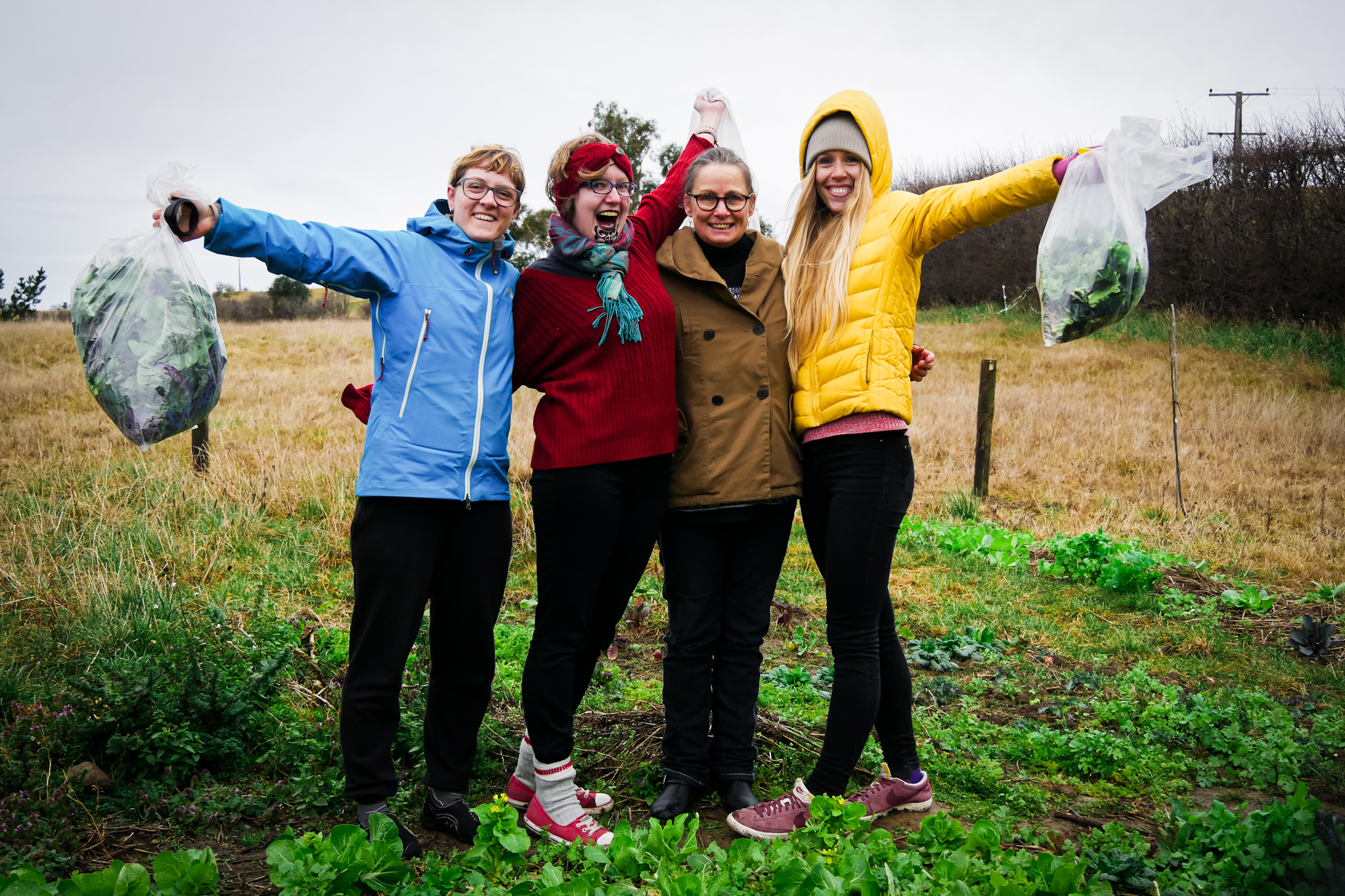
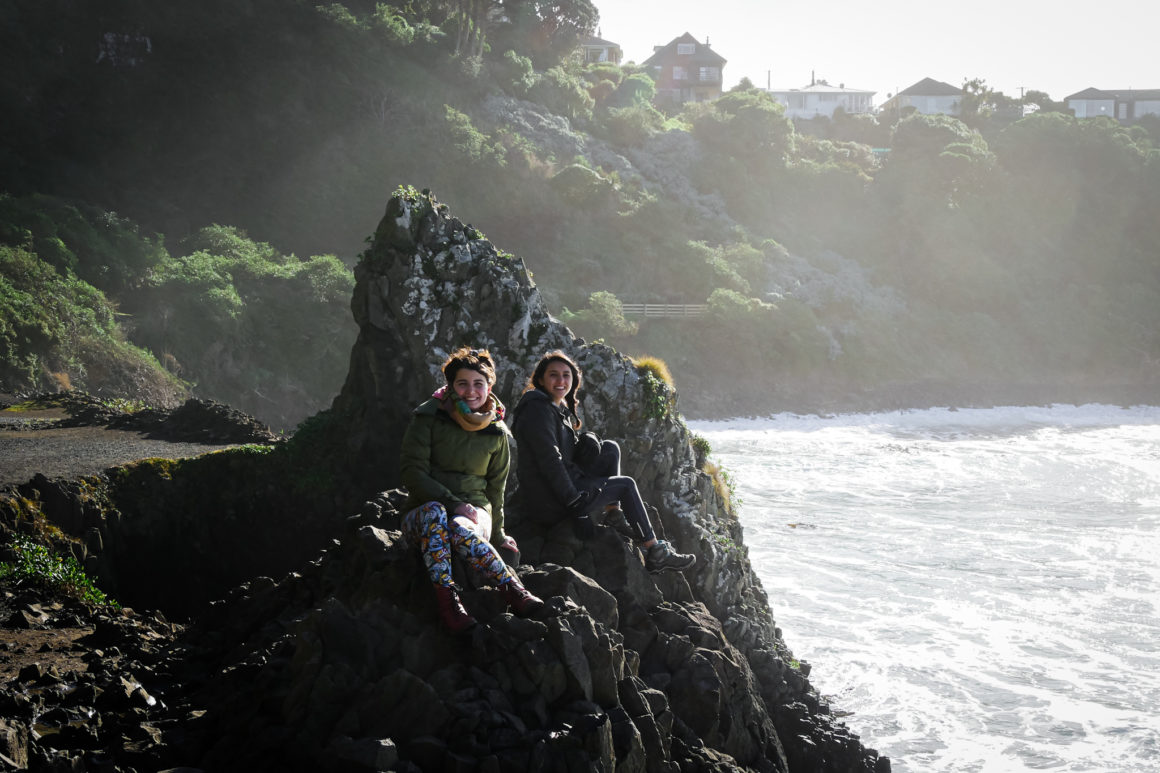
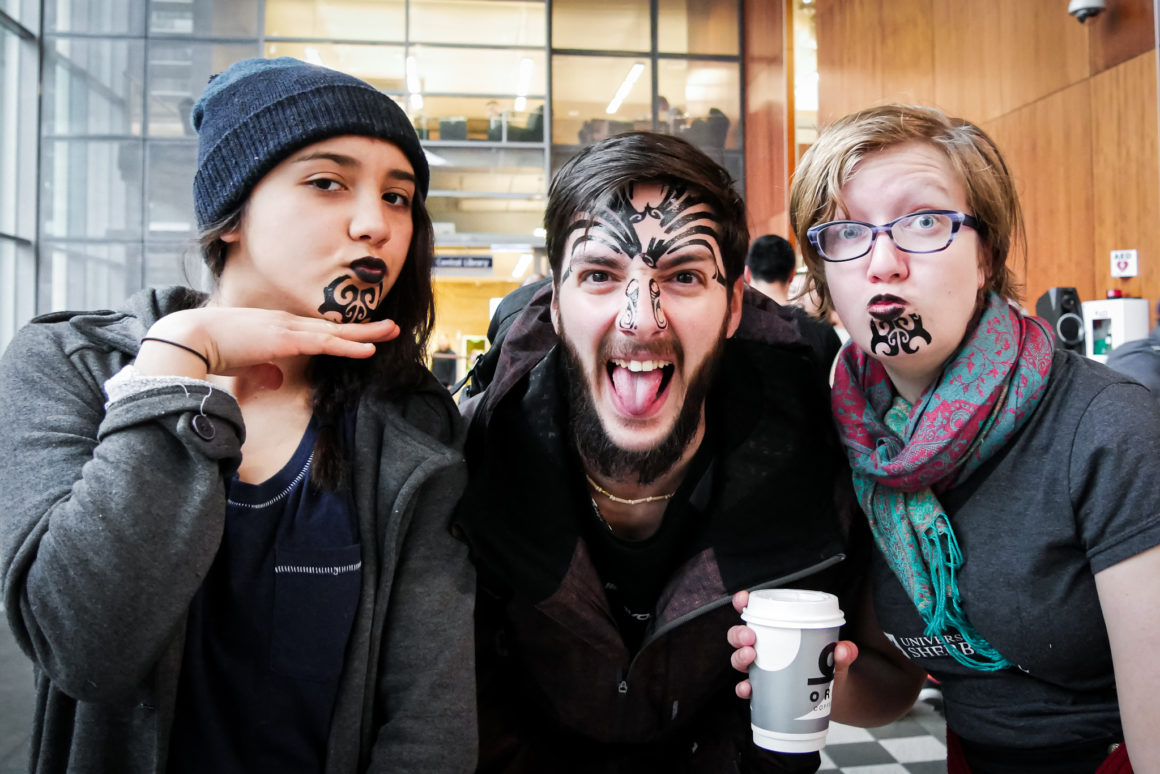
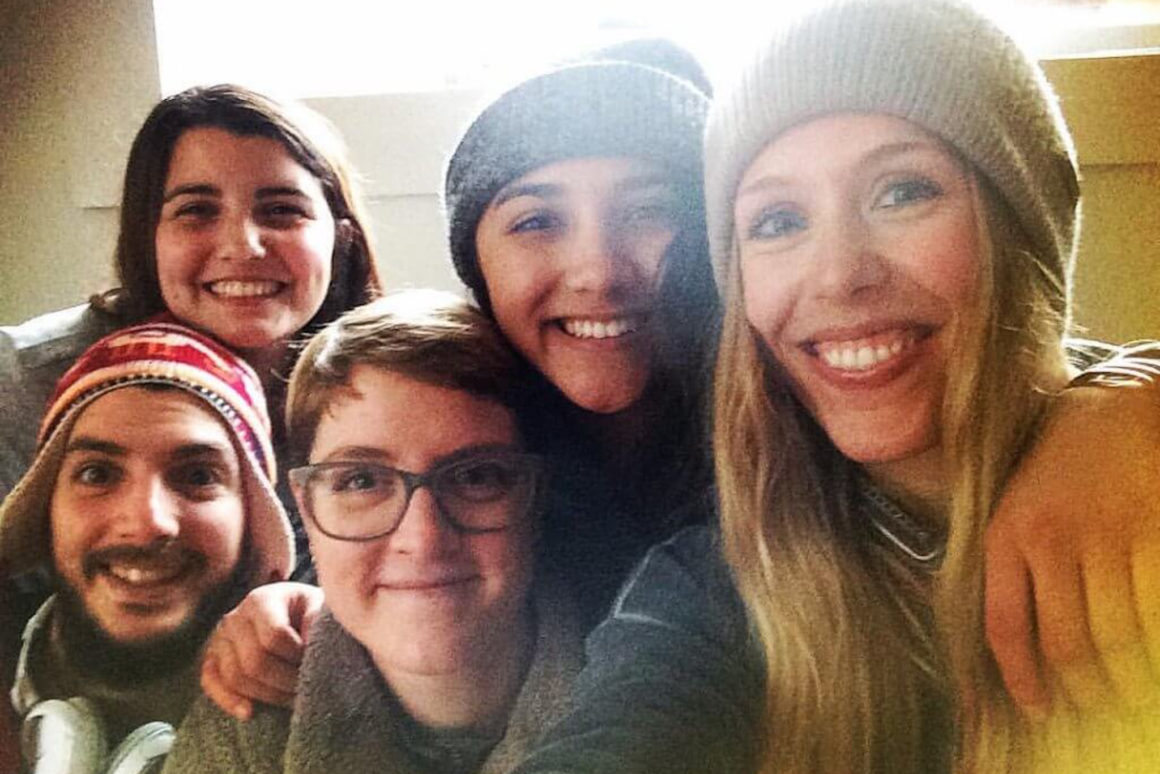
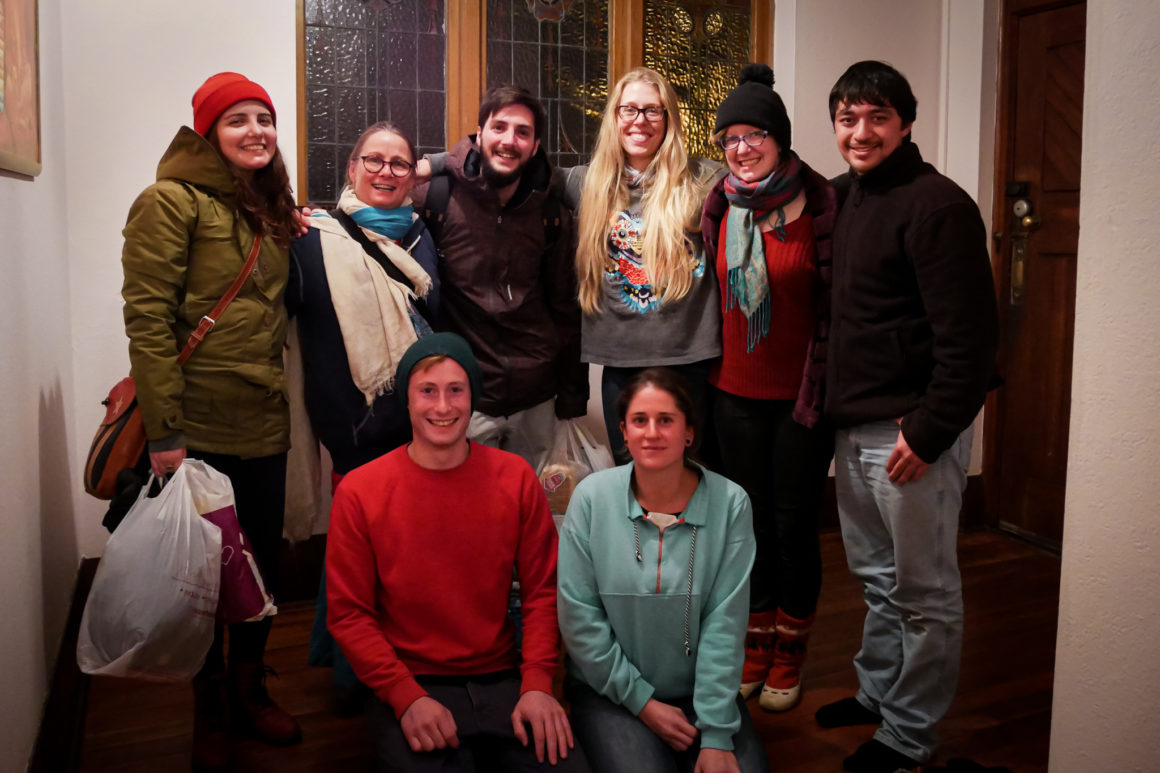
Tres Bonne Mon Ami
Such a Wonderful Blog of such a Wonderful.Time..